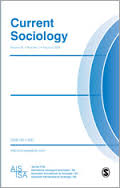Older women and ‘frailty’: Aged, gendered and embodied Resistance
The concept of ‘frailty’, as used within public health and social services, represents a powerful practice where cultural constructions, the global economic rationale of cost restriction and the biomedical focus on ageing collide as inscriptions on the bodies of older women. This article draws on complex forms of resistance witnessed within three separate studies: narrative interviews on ‘frailty’, semi-structured interviews and participant observation in community organizations with older women in Montreal and Boston. Findings reveal how older women exercise resistance in complex ways, both consciously subverting and coopting the notion of ‘frailty’ on an individual and collective level. Such resistance demonstrates the tensions between undermining dominant notions of ageing, and fulfilling prescribed gendered and age-based assumptions about older women and their bodies. The intersections and forms of older women’s resistance challenge social constructs, social expectations and what is recognized as resistance

